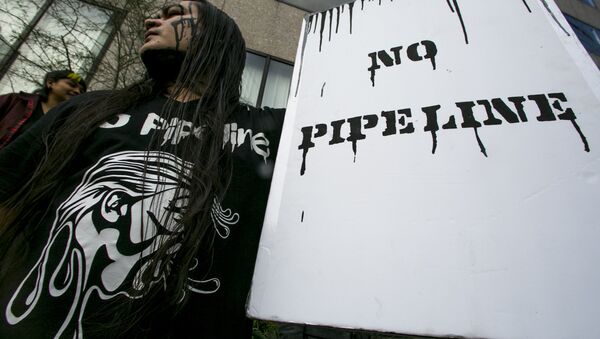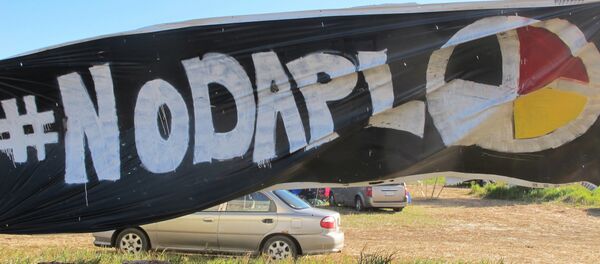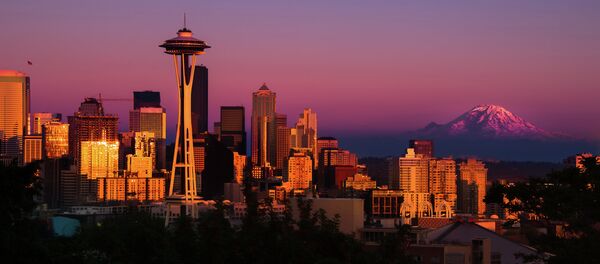Construction began immediately under Lake Oahe to finish the final 1.5-mile section of the pipeline. Should work on the project continue unimpeded, developers estimate that the pipeline will be fully operational within the next three months.
"The estimate is 60 days to complete the drill and another 23 days to fill the line to Patoka," Energy Transfer Partners spokeswoman Vicki Granado told the Associated Press.
“The granting of the easement and resulting construction activity violates the tribe’s and its members’ constitutional rights, and will result in immediate and irreparable harm to the tribe and its members before this court will be able to rule on the merits of this claim,” the tribe stated, while asking a federal court to block the easement and issue a restraining order to halt construction.
Attorney Nicole Ducheneaux, representing the Cheyenne River Sioux, intends to fight the pipeline’s construction based on freedom-of-religion.
"The sanctity of these waters is a central tenet of their religion, and the placement of the pipeline itself, apart from any rupture and oil spill, is a desecration of these waters," Ducheneaux wrote in court documents.
A hearing on the tribe’s request to temporarily block construction of the Dakota Access pipeline is scheduled for February 13.
Developers faced months of stalls, due to thousands of protesters traveling to the camp and joining the Standing Rock Sioux Tribe protest, as well as legal challenges from the Obama administration.
“With this Presidential Memorandum, President Trump directed the relevant Federal agencies (including the Army Corps of Engineers) to expedite reviews and approvals for the remaining portions of the Dakota Access Pipeline, a $3.8 billion, 1,100-mile pipeline designed to carry around 500,000 barrels per day of crude oil from the Bakken and Three Forks oil production areas in North Dakota to oil markets in the US,” the White House said of the new order.
The pipeline is intended to transport the nearly half-a-million barrels of oil per day under a large lake, across the Missouri River, and through other sensitive ecological habitats. Opponents observe that a leak would be catastrophic for the water supply of millions of people.
“We will continue to fight against an administration that seeks to dismiss not only our treaty rights and status as sovereign nations, but the safe drinking water of millions of Americans,” Dave Archambault, the tribe’s chairman, said in a statement.




